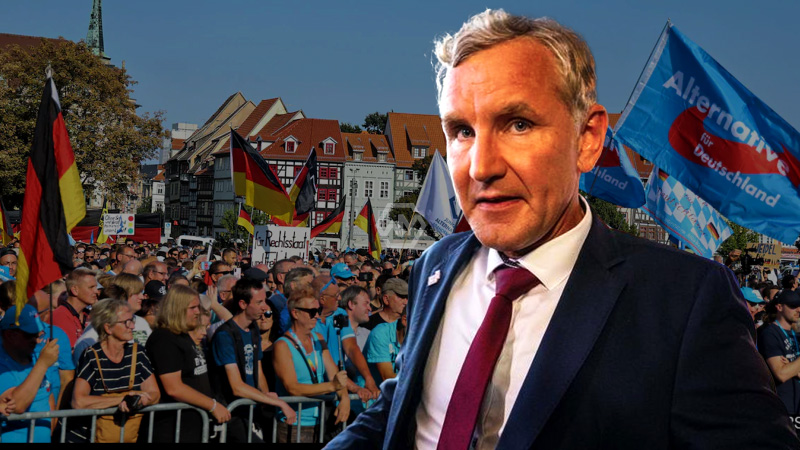- AfD wins most votes in Thuringia, marking a significant breakthrough for far-right politics in Germany.
- The CDU comes in second, while Scholz’s SPD faces a major setback, finishing fourth.
- The election results signal a potential shift in Germany’s political landscape ahead of the 2025 general elections.
The Alternative für Deutschland (AfD) has made a historic breakthrough by winning the most votes in Thuringia’s state election, the first time a far-right party has achieved this since World War II.
This development poses a direct challenge to Germany‘s mainstream political parties, all of which have vowed not to form coalitions with the AfD.
Far-Right Surge: AfD Claims Victory in Thuringia, Reshaping German Politics
In a significant political shift, the far-right Alternative für Deutschland (AfD) has secured a landmark victory in Thuringia, winning 32.8% of the vote in the state’s recent elections. This marks the first time since the Nazi era that a far-right party has won the most votes in a German state election. The conservative Christian Democratic Union (CDU) trailed behind, and Chancellor Olaf Scholz’s Social Democratic Party (SPD) suffered a major defeat, finishing in fourth place.
The AfD’s rise is particularly notable in former East German regions like Thuringia and Saxony, where economic challenges and disillusionment with mainstream politics have fueled support for the party’s nationalist and anti-immigration platform. Despite being monitored by Germany’s domestic intelligence agency for suspected extremism, the AfD’s popularity has grown, reflecting deep-seated frustrations among voters in these areas.
The election results are a stark warning for Germany’s traditional political parties, especially as they prepare for the 2025 general elections. With the AfD gaining momentum, the CDU and SPD will need to reassess their strategies to counter the far-right’s appeal, particularly in the east. The potential for the AfD to influence national politics has become increasingly evident, raising concerns about the future direction of Germany’s democracy.
This political shift also raises questions about the broader implications for European politics, as other countries watch closely how Germany responds to the rise of far-right populism within its borders. The AfD’s success may embolden similar movements across Europe, challenging the stability of the European Union and its values of democracy and human rights.
The rise of the AfD in Thuringia and Saxony marks a critical juncture for Germany, as the nation grapples with the implications of far-right populism gaining mainstream traction. How Germany’s political leaders respond in the coming months could shape the country’s future and influence the broader European political landscape.
“Our country cannot and must not get used to this. The AfD is damaging Germany. It is weakening the economy, dividing society and ruining our country’s reputation.” — Olaf Scholz



